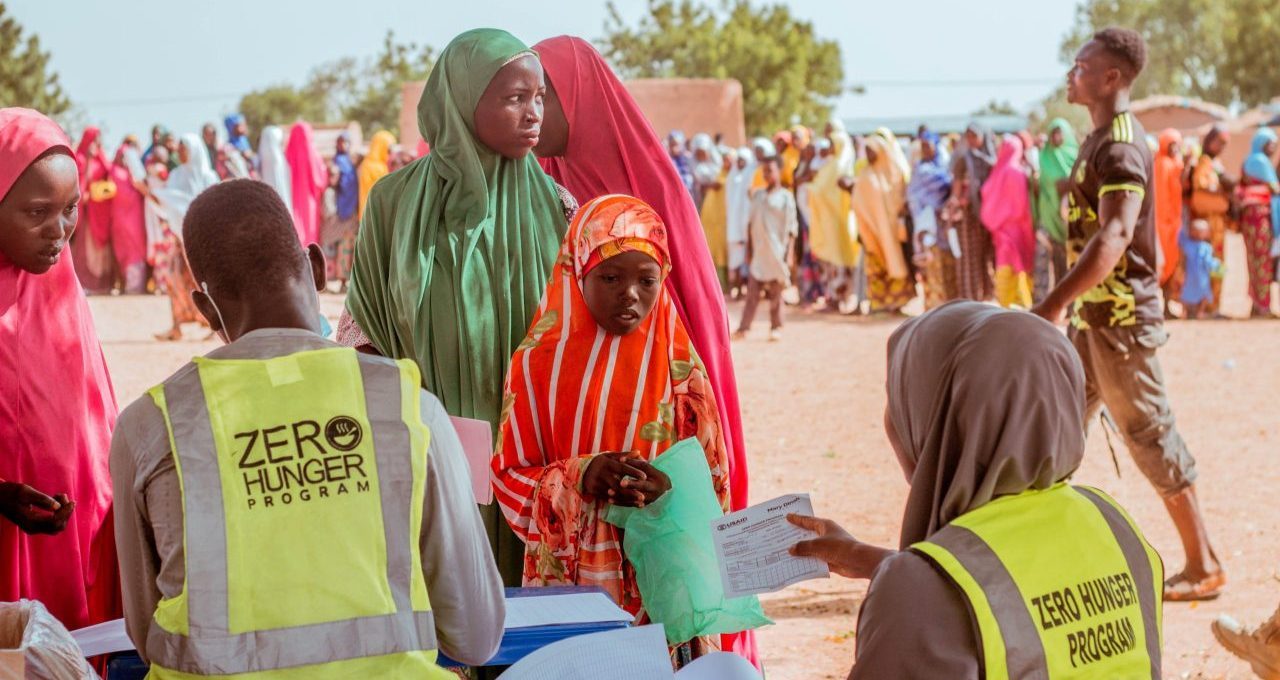Today in north-east Nigeria, millions of people are facing the painful consequences of a deteriorating food security and nutrition crisis. According to the latest food security and nutrition assessments, 3.4 million people are at risk of severe food insecurity in the lean season in the Borno, Adamawa, and Yobe states, while 2.53 million are in need of nutrition interventions.
As food insecurity worsens, so does the risk of malnutrition. In 2022, 1.74 million children under five are expected to suffer from acute malnutrition across the northeast. People’s resilience and coping mechanisms have been devastated by more than a decade of conflict. To this end, The Mary Dinah Foundation in partnership with USAID came up with the Zero Hunger Programme which is a micronutrient supplementation and food assistance program that aims to contribute to the overall reduction in morbidity and mortality caused by malnutrition.
The Mary Dinah Foundation was established in 2006 in London, UK and the charity has been active on various projects for 17 years. The Zero Hunger Programme has made significant strides in addressing the food insecurity and malnutrition crisis in northeast Nigeria. The foundation’s approach is multi-faceted and includes distributing food supplies, promoting infant and young child feeding, hygiene GBV awareness and encouraging the patronage of basic healthcare services. Providing 4 million meals, the project targeted pregnant and lactating women and children under 2 years with nutritional supplements and multivitamins.
In 2022 the programme’s intervention doubled its effort to provide 8 million meals yearly targeting vulnerable persons, especially women, girls, internally displaced persons and refugees with rice, beans, lentils and vegetables.
In her own words the managing director of the Zero Hunger Programme, Mary Dinah said that “It has always been my strong belief that societies change when women and girls are educated and empowered. It makes all the difference to families, which is the integral make-up of modern society. Our feeding program goes far beyond food alone into gender-based violence protection for women and maternal health training and monitoring. Lives are changed daily on this program and we will always continue to fight to help the hardest people to reach in the most dangerous and difficult of settings.”
Other programme activities include promoting the best infant and young child feeding practices through the formulation of mother-mother support groups. Though at the core the programme is a nutrition/food security intervention, there are a number of program activities that cut across other sectors such as health, by referrals to ante-natal and routine immunization services; WASH (Water, Sanitation and Hygiene) through hygiene promotion in the context of COVID-19; child protection and gender-based violence by providing referral pathways to case management for victims. Collectively, these activities empower women and create a more inclusive community, for greater economic outcomes.
To date, the programme has been impactful to the benefitting communities with 2,263 pregnant women have been linked to ante-natal care services, 652 children linked to routine immunization services, 722 women being beneficiaries of training and sensitization in the mother-to-mother support groups, 10,881 pregnant and lactating women and 7,198 children 6 to 24 months have received micronutrient supplements. 37,520 vulnerable people benefited from the distribution of food packages bringing up to a total of 26 million meals to date.
In conclusion, the Mary Dinah Foundation’s Zero Hunger Programme is making a difference in the fight against hunger and malnutrition. By taking a holistic approach to addressing food insecurity, the programme is helping to ensure that vulnerable people have access to nutritious food and a sustainable food system. The foundation’s continued efforts to address this critical issue are an inspiration to us all.


